Author Archive
UToledo Rocket Talk-Teacher Shortage
Tuesday, March 8th, 2022Recently aired on WGTE, Rocket Talk focused on the current teacher shortage, and the preparation of teachers. Guests on this episode are from the Judith Herb College of Education.
Most school-aged children are back in class after semesters of virtual or hybrid learning due to the pandemic. But some people didn’t return. Assistant Professor of Science Education, Dr. Natasha Hillsman Johnson, and chair of the Department of Educational Studies, Dr. Edward Janak, discuss the nation-wide teacher shortage. 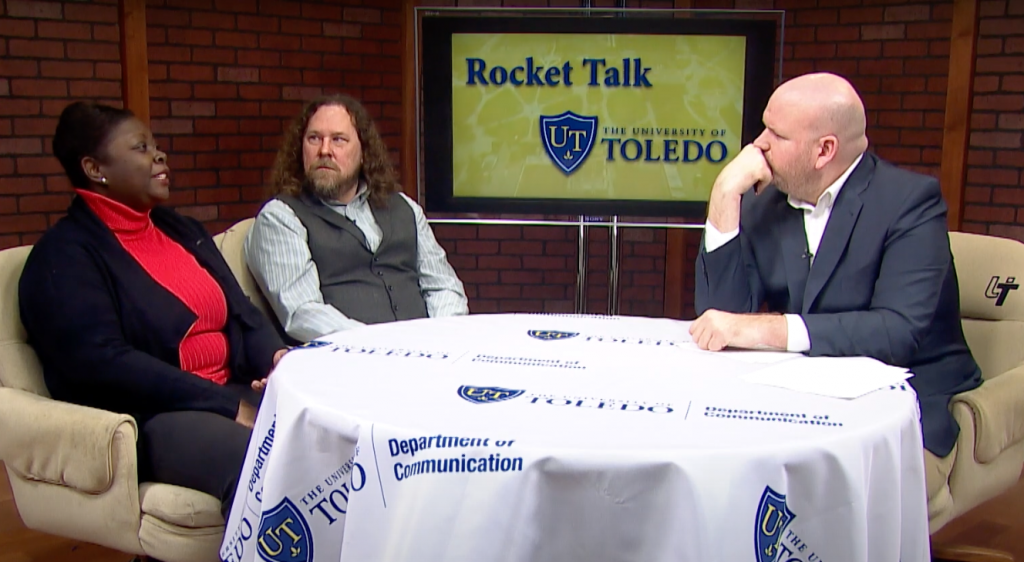
Click below to view the episode:
“United with Ukraine” Student Rally Support – JHCOE faculty to speak
Thursday, March 3rd, 2022United with Ukraine
Date: Thursday, March 3
Time: 5:30 p.m.
Location: Thompson Student Union Auditorium
Free “United with Ukraine” T-shirts will be given out to first 200 students.
The Toledo Helps Ukraine rally starts at 5:30 p.m. in the Thompson Student Union Auditorium. Attendees, who are encouraged to make signs, will then march to the Law Center.
|
|
|
|
|
|
|
|
|
|
|
Needed: FIELD SUPERVISORS
Monday, January 24th, 2022We are looking to increase our pool of supervisors for our teacher candidates. Do you know someone who could be a good mentor for young teachers?
Supervisors play an important role in the development of the next generation of educators. By making classroom visits to observe student teachers, supervisors have a great opportunity to support, guide, and assist future teachers.
Requirements:
• Minimum three years teaching experience
• Master’s degree in field, preferred
• Minimum technology skills
Benefits of being a supervisor:
• Staying connected to the field of education
• Flexible schedule
• Stipend and mileage reimbursement
For additional information, contact:
Melissa Stewart, Coordinator of Student Field Experiences
UToledo’s Judith Herb College of Education
419.530.8558
Melissa.Stewart@UToledo.Edu
Student Vlog: Tips for new semester
Friday, January 21st, 2022In her UToledo Students Vlog, Taiyah Persi-Roberts, a junior middle childhood education major from Pittsburgh, shares tips for getting the most out of the new semester including not feeling overwhelmed.
Nice work Taiyah!
Follow the link below to view:
Event Invitation – The Future of Education: Divisive Concepts in the Classroom
Monday, November 29th, 2021Students in the Judith Herb College of Education course titled Schooling and Democratic Society are hosting a town hall about Ohio House bills 322 and 327 from 5:30 to 7 p.m. Wednesday, Dec. 8, in Health and Human Services Building Room 1600 on Main Campus. Free parking is available for the event only in lots 1N and 1S.
The event, titled “The Future of Education: Divisive Concepts in the Classroom” and sponsored by the UToledo Department of Educational Studies, will begin with an overview of the bills and a working definition of “divisive.” A panel of speakers will lay out issues, and participants will be invited to voice or submit questions and short statements. The list of panelists is being finalized.
To attend the Dec. 8 event virtually, preregister via Webex.
FREE TO TALK: An Interactive Conversation About Mental Health
Tuesday, November 2nd, 2021FREE TO TALK: An Interactive Conversation About Mental Health
November 9, 2021
7-8 p.m
Collier Building Room 1200 (Health Science Campus)
Dr. Spann – Distinguished Alumni Winner
Monday, October 11th, 2021Congratulations to Dr. Sammy Spann (PhD ’09), the Judith Herb College of Education’s Distinguished Alumni winner. Dr. Spann was recognized at the UToledo Homecoming Gala on Oct. 8, 2021.
Aside from UToledo’s president, Dr. Sammy Spann may be the most popular name on campus in the eyes of students. As associate Vice President and dean of students, Spann has unparalleled experience with the university. First starting as an employee of UToledo in 2002, Spann now offers leadership, administrative oversight and support to the Division of Student Affairs and several other offices.
Yippee Sammy!
Grant Award: LAUNCHING EDUCATORS FOR ALL LEARNERS
Friday, September 17th, 2021The Judith Herb College of Education has recently been awarded a grant from the Ohio’s Dean Compact.
The project, entitled Launching Educators for All Learners: UToledo’s Dual License Initiative, will redesign the University of Toledo’s successful graduate-level licensure programs for middle childhood education and adolescent and young adult education. The outcome of this work will result in inclusive graduate-level teacher preparation programs which prepare educators to meet the needs of all learners, particularly those with diverse learning needs. The revised programs will be grounded in culturally responsive practices and leads to dual licensure (e.g., middle childhood education + 4-9 intervention specialist; adolescent young adult education + 7-12 intervention specialist) and a Master of Education.
The two year project is in collaboration with school partners Toledo Public Schools and Washington Local Schools. The co-principal investigators are Richard Welsch, Jenny Denyer, and Rebecca Schneider.
Program redesign is an exciting opportunity to ensure further Rocket educators are well prepared for launching their careers as educators.
Best Wishes Student Teachers
Thursday, September 16th, 2021Best wishes to our Fall 2021 student teachers! The candidates began the semester with a day of professional development and learning on campus. These bright candidates are eager to begin teaching and making an impact on young learners. Have a wonderful semester!
Special thanks to all of our partner schools for mentoring the next generation of #RocketEducators
Study Shows Motivation is Key for Teachers to Overcome Racial Bias in Classroom
Thursday, September 9th, 2021
|
|



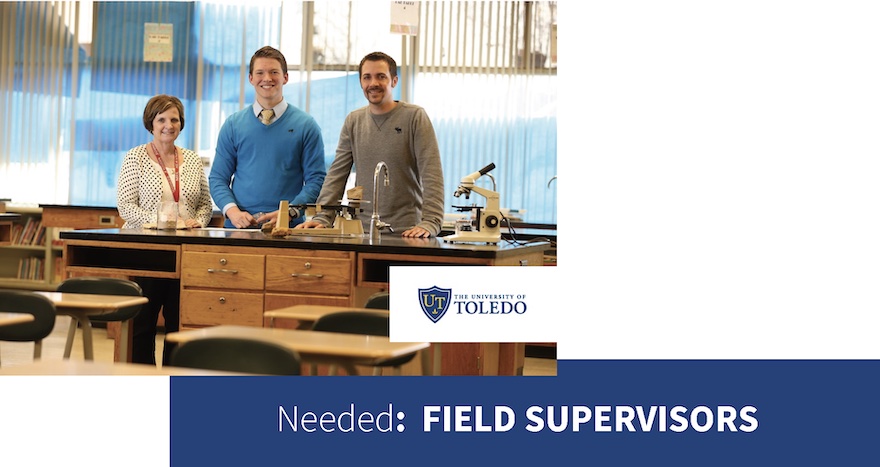
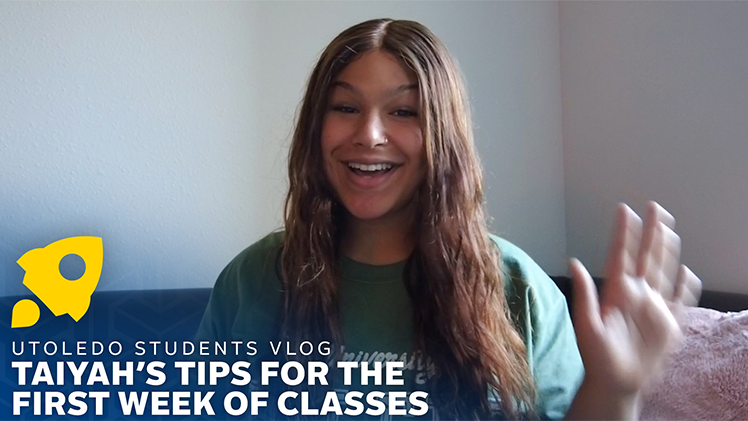
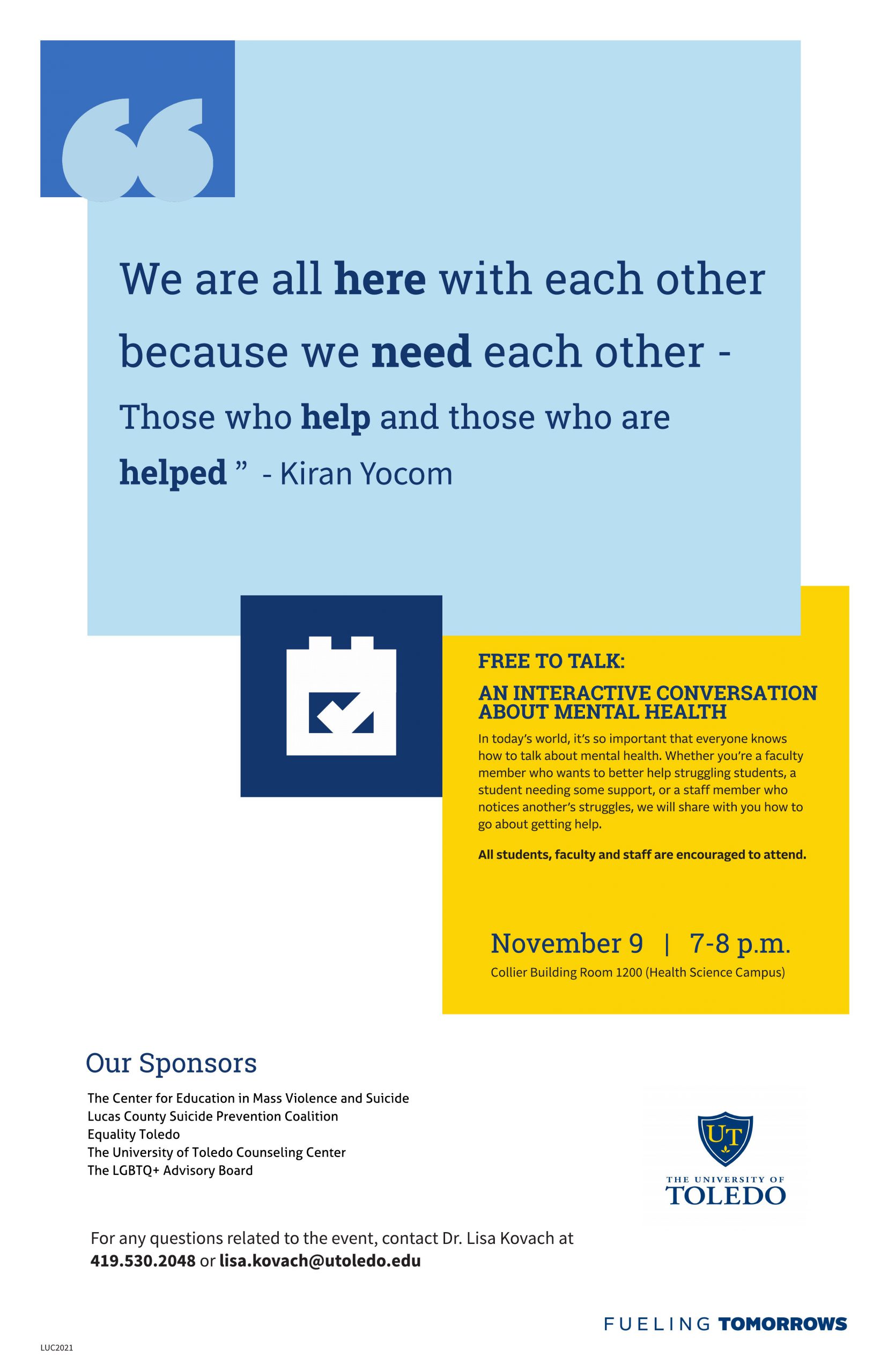
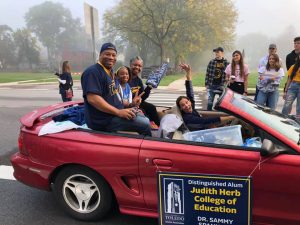

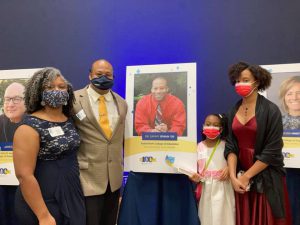
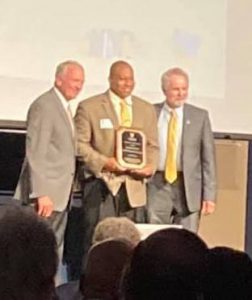
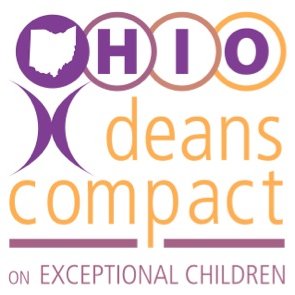
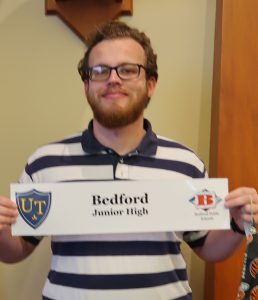
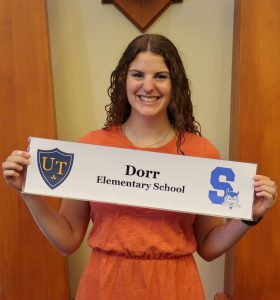
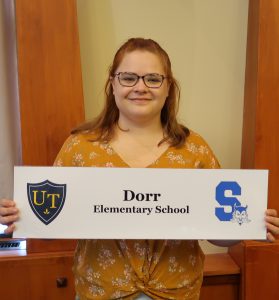
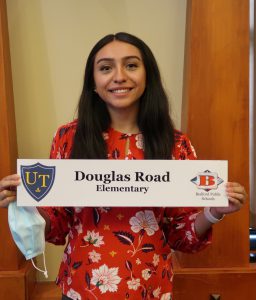
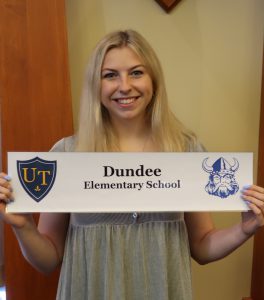
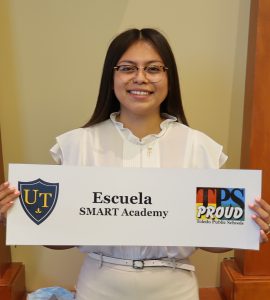
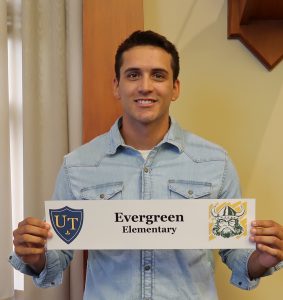
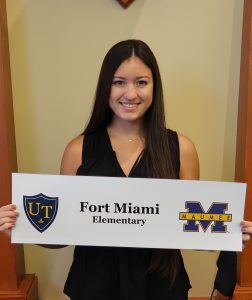
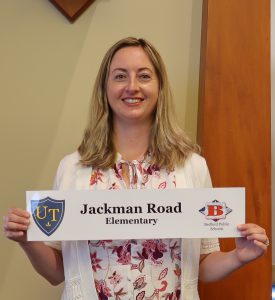
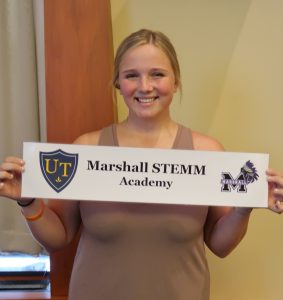
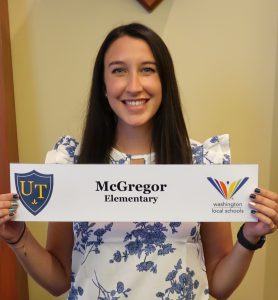
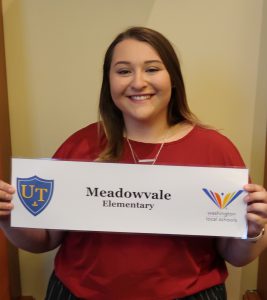
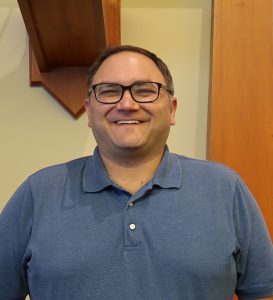
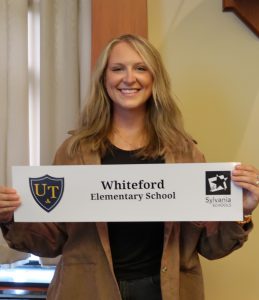
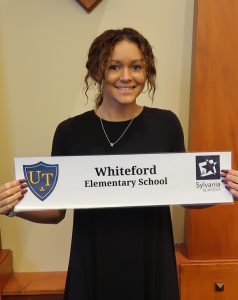
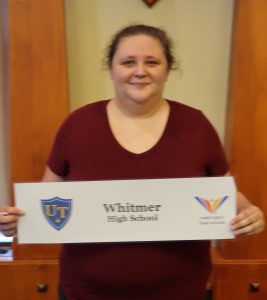
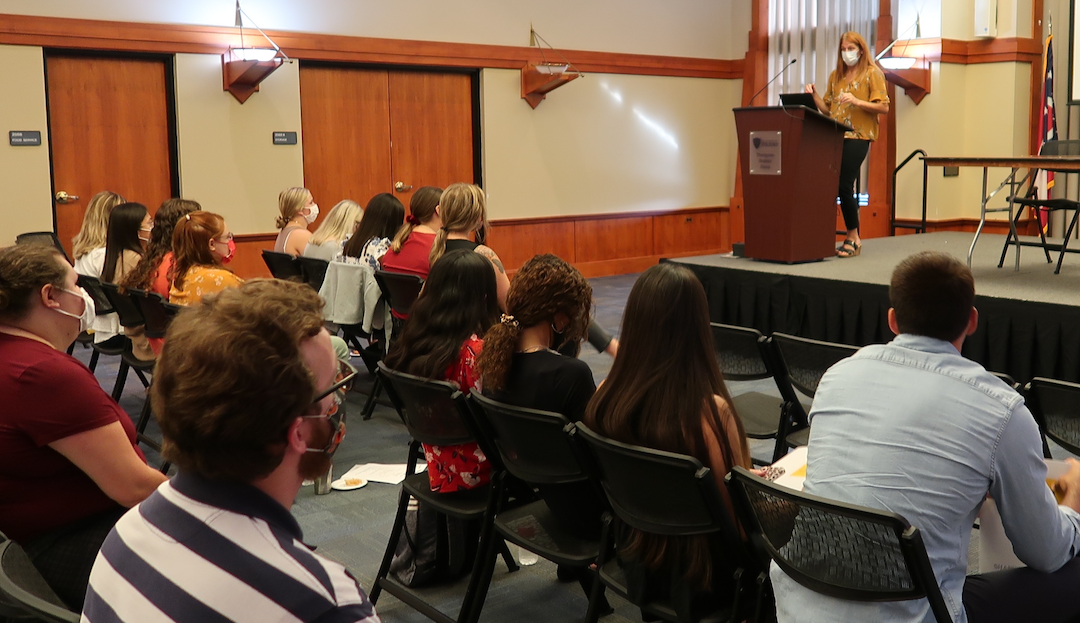
 “All of us carry biases — it’s natural because we’re human,” said Dr. Revathy Kumar, professor of educational psychology in The University of Toledo Judith Herb College of Education. “What we do about our awareness of those biases makes a difference to our students, their comfort in the classroom, their academic efficacy, self-esteem and academic performance. It is vital for teachers to be motivated to be genuinely unprejudiced to overcome racial bias and create an inclusive learning environment.”
“All of us carry biases — it’s natural because we’re human,” said Dr. Revathy Kumar, professor of educational psychology in The University of Toledo Judith Herb College of Education. “What we do about our awareness of those biases makes a difference to our students, their comfort in the classroom, their academic efficacy, self-esteem and academic performance. It is vital for teachers to be motivated to be genuinely unprejudiced to overcome racial bias and create an inclusive learning environment.”